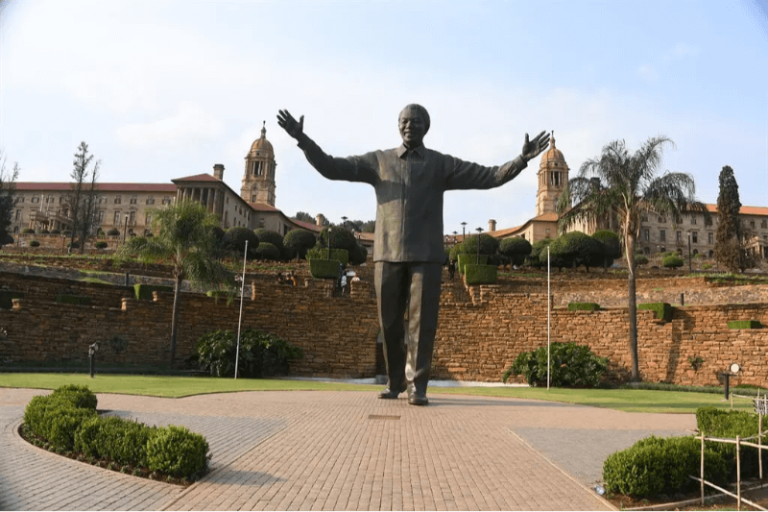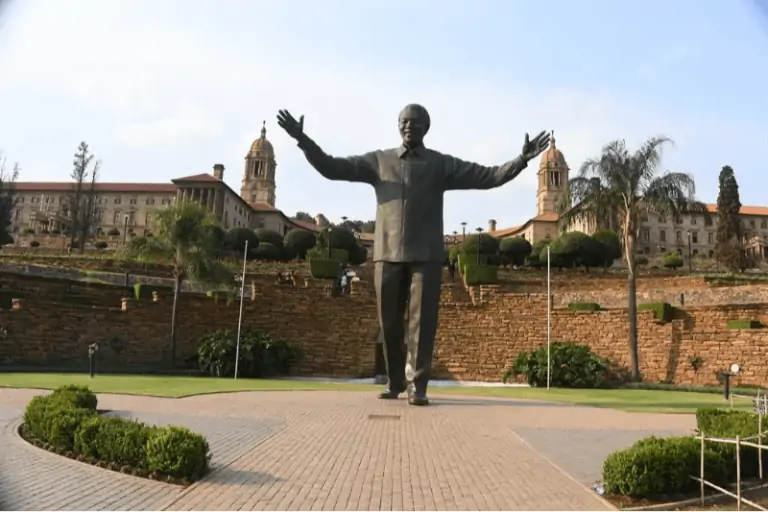

added to unesco world heritage list are south african anti apartheid sites
The World Heritage List of the United Nations Educational, Scientific and Cultural Organization (UNESCO) now includes several sites in South Africa linked with the lengthy and brutal anti-apartheid fight.
Following the Second World War, South Africa developed the system of institutionalized racial segregation sometimes known as apartheid. Early in the 1990s, it was finally destroyed mostly because of the sacrifices made by activists such as Nelson Mandela, who later presided over the nation as its first post-apartheid president.
Originally nominated to UNESCO as “Human Rights, Liberation Struggle and Reconciliation: Nelson Mandela Legacy Sites,” the serial property—which consists of fourteen component sites dispersed over the nation—all relate to South Africa’s political history in the 20th century.
Among these are the Union Buildings, presently the main residence of the South African government and home for the President’s offices. They have staged several significant events over time, including the 1994 inauguration of South Africa’s first democratically chosen president. Ever since it was inaugurated a day following Nelson Mandela’s funeral in Qunu-a community close to the late president’s birthplace – late 2013 – a nine-meter-high bronze monument of him has stood at the foot of the buildings.
Liliesleaf in Johannesburg is another important landmark related to the struggle against apartheid. Political activists practically from the beginning of the revolution used this secret house and gathering spot. Ten leaders, including young Mandela, were seized by police raids on the farm in 1963. At the notorious Rivonia Trial a year later, they were sentenced to life for sabotage. Exhibits commemorating the path of democracy in South Africa now find Liliesleaf home.
Once imprisoned with Mandela, Tokyo Sexwale is an anti-apartheid campaigner presently serving on Liliesleaf’s board of directors. Including the place on the heritage list, in his opinion, marks worldwide appreciation of South Africa’s long path to freedom.
“Although it’s a great accolade for UNESCO to do, for us it’s for South Africa, as I mentioned earlier. It is for respect of what democracy stood for, for social fairness, for human rights. It was for our own national self-determination, so enabling us to handle the affairs of our country. For the UN, UNESCO, in this sense, to acknowledge what happened here is important,” Sexwale added.
One of the most sought-after locations for visitors eager to learn more about apartheid and the fight to abolish it is Liliesleaf.
“This chronicles the most crucial component of the resistance effort, which resulted in the freedom of this nation. Merle Jacobs, a tour guide, added, “This is why I enjoy visiting this venue; it tells that story and the people engaged in it.”
“Most people who come here want to find out where Nelson Mandela was in hiding, where did they have all those secret meetings, what kind of life was he living here,” said Tracey Rapelego, another tour guide.
“I’m American, thus I find great interest in the background of civil rights in the United States. As a worldwide movement of civil rights, this is absolutely vital. Furthermore, the variations in the experience here and the United States have been rather fascinating. It opens my eyes. Said a visitor, Anita Lichtenberg, “it’s been fantastic.”
Among other South African sites identified as UNESCO World Heritage sites are Walter Sisulu Square, Sharpeville Heritage Precinct, and Constitutional Hill, home of the country’s highest court.
The inscription of these sites has been welcomed by South African President Cyril Ramaphosa, who also urged the people to assist in preservation of them.
Rob Walter Resigns his Position as coach for the Proteas men's team for white-ball games because personal problems needed attention.…
Starting April 2, South African drivers will get lower costs when filling their tanks as fuel prices decrease for all…
The U.S.-based driver training company Zutobi analyzed road safety worldwide and found South Africa stays last in driving danger since…
The Basketball Africa League (BAL) returns for its 2025 season with exciting changes and developments. Since 2019 the NBA-linked basketball…
The Somali president supports their military forces to eliminate the threats from Al-Shabaab, ISIS, and Al-Qaeda. The Somali National Army…
UAE President Sheikh Mohamed bin Zayed Al Nahyan held talks with President Faustin Archange Touadéra of the Central African Republic…
This website uses cookies.